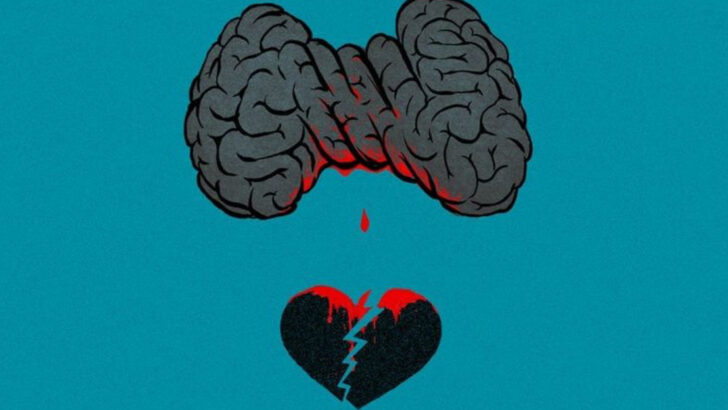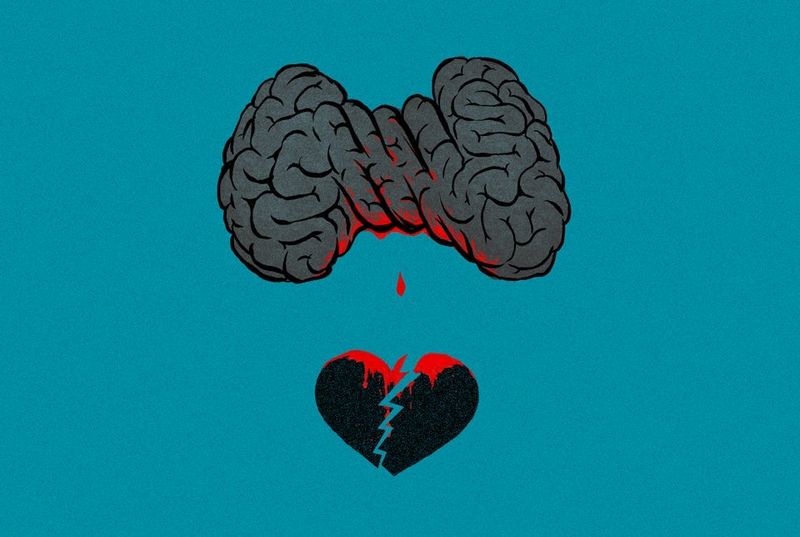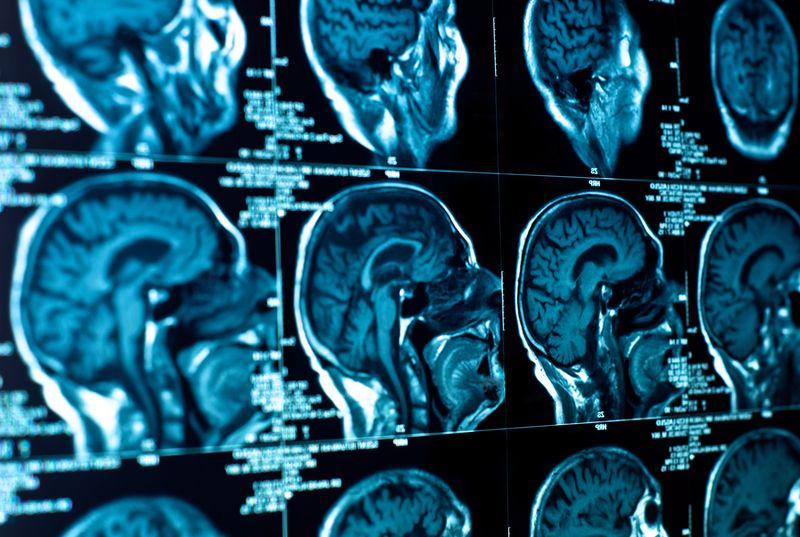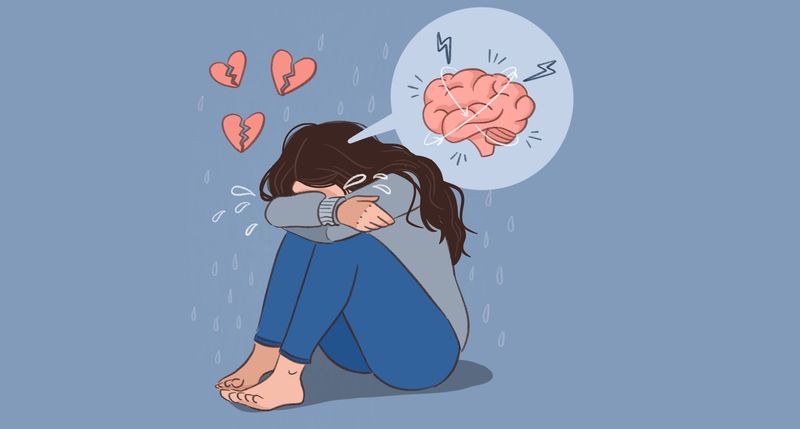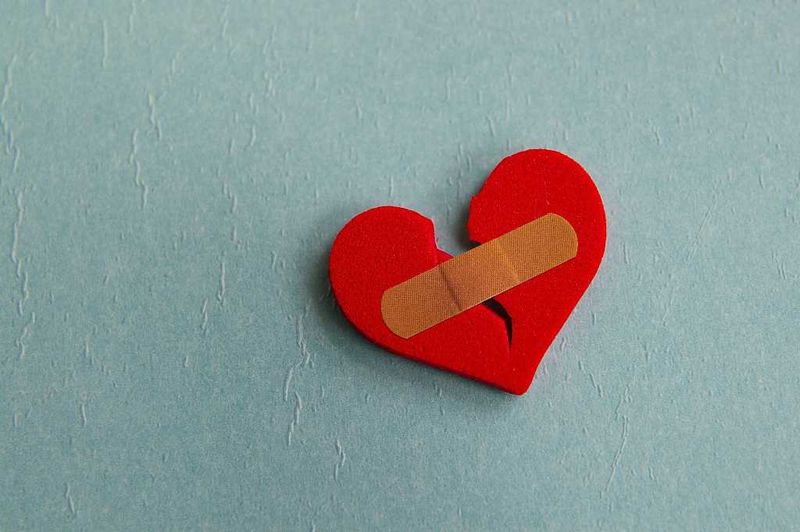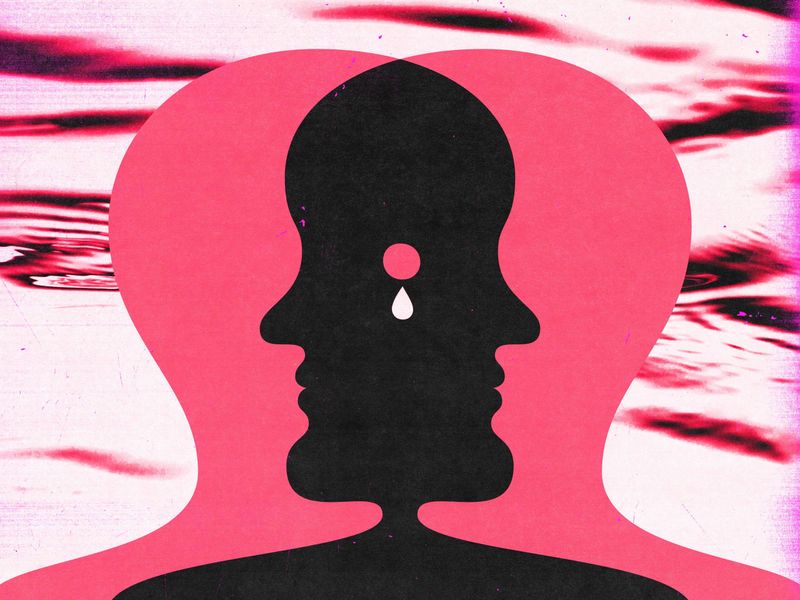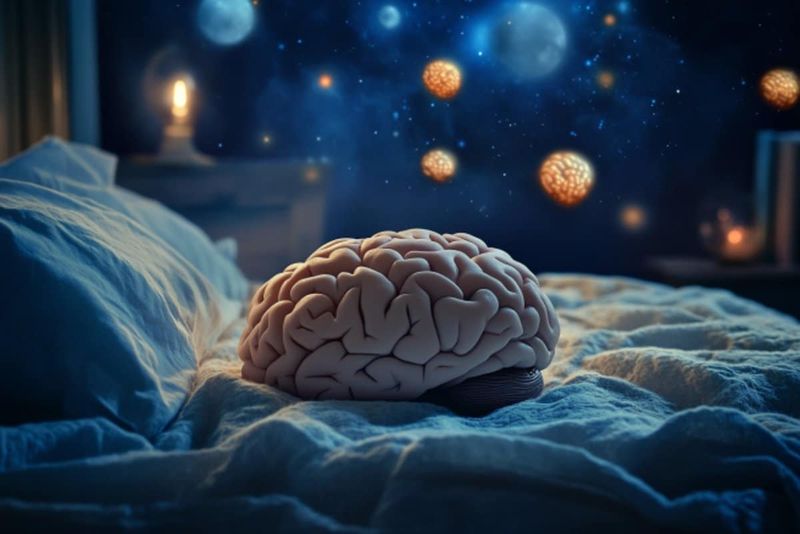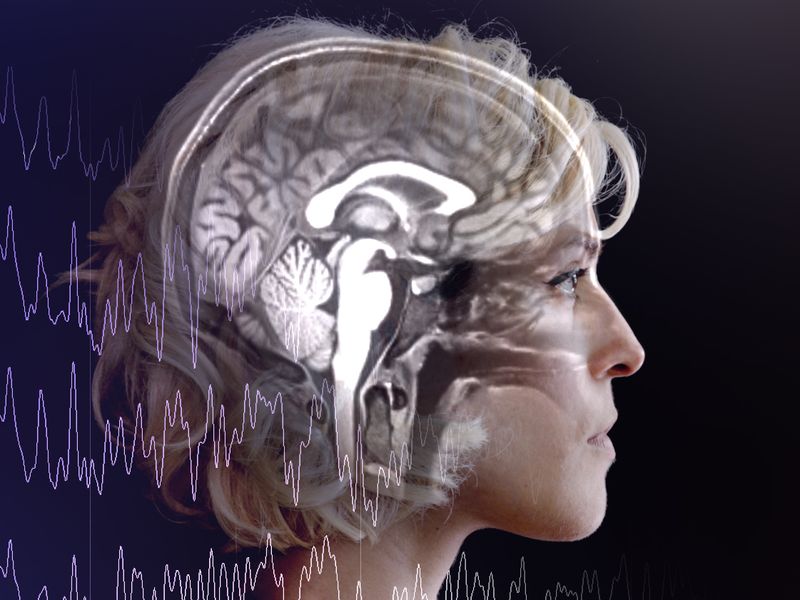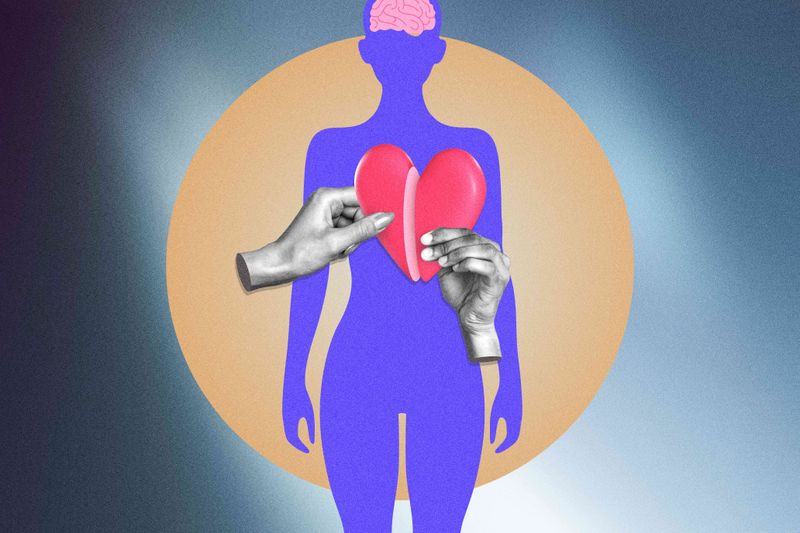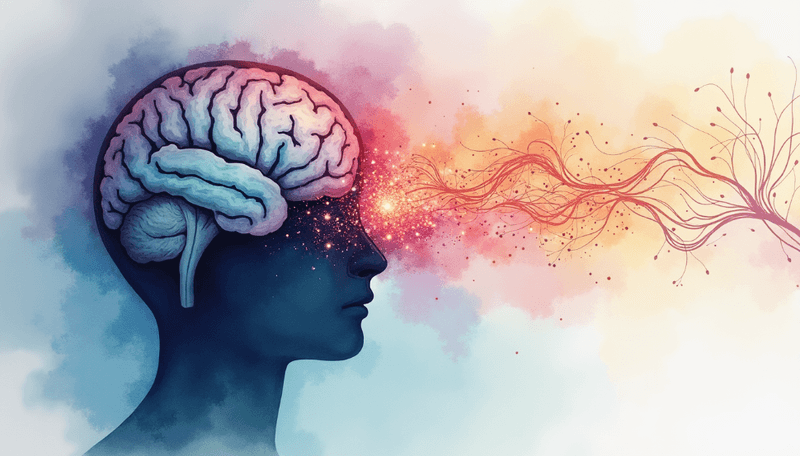Heartbreak. It’s not just tears, sad songs, and calling your best friend at 2 a.m. with mascara on your pillowcase. It’s actual brain chaos.
Scientists have studied heartbreak like it’s a trauma—and guess what? It kinda is. When love goes south, your brain doesn’t just “feel sad.” It experiences something disturbingly close to withdrawal, physical pain, and cognitive rewiring.
So here are 18 science-backed, brain-freaking truths about what’s happening inside your head when your heart gets shattered.
1. Heartbreak Hurts Like a Broken Bone—Literally
You ever notice how heartbreak feels like you’ve been hit by a truck? There’s a reason for that—the same areas in your brain that process a sprained ankle light up during emotional pain. When love ends, your anterior cingulate cortex goes wild, interpreting that heartache as physical agony.
You’re not being overly sensitive—it’s a neurological event with real, measurable consequences. That’s why curling up under your comforter feels almost like treating a wound.
It’s a scientific fact: emotional pain and physical pain overlap in the brain. So next time someone tells you to “just get over it,” remember your brain is actually in crisis mode. Girl, you’re tough for surviving it all.
2. Reward System Meltdown: Dopamine Drama
Ever go from cloud nine to rock bottom when love fizzles? Thank your dopamine system for that wild ride. The thrill of being in love is fueled by this chemical, painting every text and touch in neon colors.
But after a breakup, your brain’s reward center short-circuits. Suddenly, that familiar rush is gone, leaving a desperate craving for something—or someone—you can’t have. No wonder everything feels a little dull and colorless.
It’s not just all in your head; your brain’s lost its daily dose of feel-goods. That craving for your ex? It’s basically dopamine withdrawal, and yes, it’s a real thing.
3. Withdrawal: Your Brain on Love Loss
Breakups can leave you feeling jittery, restless, and constantly reaching for your phone. Neuroscientists say that this is no exaggeration—your brain reacts to heartbreak the same way it does to quitting a strong drug.
MRIs show that dumped lovers experience brain activity eerily similar to that of cocaine withdrawal. That means your “I need to call them” spiral isn’t weakness; it’s chemical chaos.
Your mind is literally detoxing from love, making it tough to focus, sleep, or even eat right. So if you’re struggling to let go, blame the withdrawal—not just your willpower.
4. The Brain Hangs On to Hope
Ever stalk your ex’s socials long after things ended? There’s a reason: your prefrontal cortex (logic center) takes a back seat, while emotional circuits run the show.
Your brain just can’t process “it’s over” right away. The rational part gets hijacked by hope, replaying old memories and clinging to every possible sign.
This explains why you double-check their stories, reread old texts, and hold out for closure that never comes. You’re not obsessed—you’re wired this way, at least for a while.
5. Cortisol Chaos: Stress Levels Off the Charts
Ever feel exhausted, foggy, or sick after a split? It’s not just the sadness—your brain triggers a flood of cortisol, the body’s stress hormone.
This stress surge can mess with everything from your energy levels to your immune system. You might notice more colds, headaches, or even breakouts.
High cortisol lingers, making it tough for your mind and body to bounce back. Heartbreak isn’t just emotional; it’s a full-body stress test, and you’re living proof.
6. Decision-Making Goes Rogue
Remember that time you cut your own bangs or sent a risky text at 2 a.m.? That’s your brain on heartbreak. The stress hijacks your decision-making, making impulse moves your new normal.
Your logic center gets drowned out by emotions, so you’re more likely to make choices you’d never consider otherwise. Trips, haircuts, late-night calls—it’s all fair game.
You’re not losing your mind; your brain’s just overwhelmed, looking for anything to feel better. So give yourself some grace and maybe hide the scissors for a bit.
7. Appetite in Retreat: Why You Can’t Eat
If your fridge is full but you’re not hungry, you’re not alone. Heartbreak triggers stress hormones that can flip your appetite switch to “off.”
There’s actually a term for it: “love loss anorexia.” Your body gets so overloaded by grief and cortisol, it forgets about basic needs like eating.
So if salads sit untouched and you’re living on coffee, blame your biology. Your appetite will return—usually when your heart stops hurting so much.
8. The Comfort Food Spiral: Snack Attack
On the flip side, maybe you can’t stop eating all the things. There’s science behind those late-night ice cream parties—comfort food helps spike serotonin and dopamine, your feel-good chemicals.
After a breakup, your brain craves anything that brings calm or distraction. Food becomes a quick fix when everything else feels broken.
No shame in it. Sometimes, healing looks like mac and cheese, a soft blanket, and a little extra kindness for yourself.
9. Memory on Repeat: The Netflix Loop
Ever replay a perfect date in your head until it hurts? Your hippocampus (memory center) is working overtime, putting old memories on an endless repeat.
This happens because your brain is trying to make sense of what happened—analyzing every detail, searching for answers.
It’s like being stuck in a bad Netflix binge, except you can’t change the channel. Give it time; eventually, the reruns get replaced by new stories.
10. Ex on a Pedestal: The Brain’s Cruel Joke
Funny how your ex seems ten times more attractive after the breakup. Brain scans show your ventral tegmental area—the part linked to desire—lights up, making you long for what’s gone.
Your mind starts editing out the bad and romanticizing the good, putting your ex on an impossible pedestal.
This isn’t just nostalgia, it’s biology. Your brain is clinging harder to the thing it can’t have, making moving forward feel like running in place.
11. Sleep is Officially Broken
Nothing kills a good night’s sleep like heartbreak. Racing thoughts, stress hormones, and plummeting melatonin all tag-team to ruin your rest.
Insomnia or waking up every hour becomes the new normal, and naps feel more like mini time-outs than real rest.
Don’t beat yourself up—it’s just your brain scrambling to process the loss. Eventually, those 3 a.m. overthinking sessions fade as your mind settles down.
12. Emotional Radar Goes Wild: Hypervigilance
Suddenly, every word, emoji, or pause in a chat feels loaded. Heartbreak makes your brain hyper-attuned to emotional cues, a state called hypervigilance.
You overanalyze, reread, and get stuck wondering what every little thing means—brain on high alert for threats or closure.
It’s exhausting, but it’s a sign your mind is still processing the loss. Hypervigilance eventually settles down as you heal and regain trust in your own instincts.
13. The Closure Trap: Stuck on Repeat
Closure is the unicorn of breakups. Your brain craves it, looping endlessly when there’s no explanation or clean ending.
This unfinished business drives your mind to replay conversations, dissect texts, and invent reasons for what happened.
It’s a maddening cycle, but it’s also your brain trying to protect you—desperate to find safety by making sense of the chaos. Eventually, you move forward, even if you never get all the answers.
14. Serotonin Sinks: The Mood Drop
Feeling down, obsessive, or even a little moody after a breakup? Blame serotonin. This “feel-good” chemical drops off a cliff, bringing waves of sadness and looping thoughts.
Low serotonin is a major culprit in heartbreak-induced depression. It’s why you might start stalking playlists or obsessing over tiny details.
It’s not just you—everyone’s brain gets a little rocky as serotonin dips. The good news? Levels rise again with time, self-care, and support.
15. Brain Shrinkage: The Temporary Dip
Here’s a wild fact: heartbreak can temporarily shrink your brain’s gray matter. Studies show emotional agony can reduce the volume of certain brain regions, especially the prefrontal cortex.
This might make you feel foggy, forgetful, or just “off” for a while. The change is real but not forever—your brain’s structure bounces back as you recover.
So if you’re feeling mentally wobbly, know that your brain is healing as hard as your heart is.
16. Biochemical Bruise to Self-Esteem
Breakups hit self-esteem like a wrecking ball. Those feelings of rejection and shame? They’re amplified by brain chemicals that get way louder after you’ve been dumped.
The criticism you hear in your head isn’t just your inner saboteur—it’s your brain’s response to social pain, making you extra sensitive to perceived flaws.
It’s temporary, but it can sting like crazy. You’re not broken; your confidence is just bruised, and the chemicals will chill out with some patience and self-kindness.
17. Physical Symptoms: When Heartbreak Hurts for Real
Ever feel like heartbreak is making you actually sick? “Broken heart syndrome” isn’t just poetic—it’s a real medical condition.
Intense stress floods your system with adrenaline, sometimes mimicking a heart attack. Symptoms can include chest pain, nausea, or shortness of breath.
It usually passes, but it’s a dramatic reminder that emotional pain shows up in your body. Treat yourself with the same care as you would any physical illness.
18. The Comeback: Brain Rewiring and Hope
Here’s the light at the end: your brain is magical at healing. Neuroplasticity means new connections form, helping you build stronger boundaries and deeper self-love.
With time, support, and maybe a little therapy, you start to feel whole again. The pain fades, new routines settle in, and your brain literally rewires for better relationships.
Believe it—your next love will find a smarter, stronger you. Heartbreak shapes you, but it never defines you.

